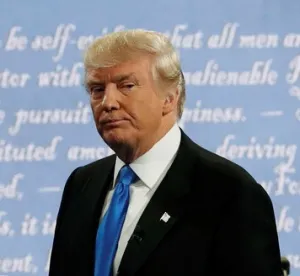On September 22, 2020, President Trump issued a controversial “Executive Order on Combating Race and Sex Stereotyping” (Executive Order 13950 or Order) in a purported effort “to combat offensive and anti-American race and sex stereotyping and scapegoating.” The Order sweepingly bars federal contractors from inculcating such views in their diversity and inclusion workplace trainings. In quick succession, the Office of Federal Contractor Compliance Programs (OFCCP) then readied for enforcement by launching a complaint hotline, issuing nine frequently asked questions and publishing a Request for Information (RFI) in the Federal Register seeking documents and information to support the Order.
The Order has had an immediate disruptive impact on federal contractors as many have postponed or canceled training and other diversity initiatives while struggling to interpret the Order. On October 15, 2020, the U.S. Chamber of Commerce and a group of more than 150 business organizations took a rare step in sending a letter to the president opposing Executive Order 13950 and requesting that it be withdrawn. The letter contended that the Order, which specifically threatens companies with suspension and debarment in addition to other enforcement action, will cause confusion and uncertainty for federal contractors, lead to non-meritorious investigations, and hinder the ability of employers to promote diversity and combat discrimination. On October 29, 2020, NAACP attorneys brought the first lawsuit challenging the Order by filing a class action suit (Complaint) against President Trump, the Department of Labor (DOL) and Secretary of Labor Eugene Scalia on behalf of the National Urban League, the National Fair Housing Alliance and all others similarly situated.
The Complaint states that Executive Order 13950 “is an extraordinary and unprecedented act by the Trump Administration to undermine efforts to foster diversity and inclusion in the workplace.” The Complaint further challenges the Order on constitutional grounds and seeks a declaration that the Order is unlawful and invalid, and a permanent injunction prohibiting the president and his officials from implementing or enforcing the Order.
The Complaint asserts three causes of actions alleging the Order violates the First and Fifth Amendments to the U.S. Constitution:
-
First Amendment. The Complaint alleges the president issued the Order “to silence viewpoints disliked by his Administration” (including discussions acknowledging “the existence of white privilege, implicit bias, systemic racism, structural inequalities, or intersectional experiences of discrimination”) and that the Order violates the First Amendment by censoring and chilling free speech. According to the Complaint, the Order “bans discussions of inequality grounded in the context of our Nation’s history and the lived experiences of those who have been most marginalized and discriminated against.” Additionally, the Complaint takes issue with the fact that federal contractors and grant recipients are banned from engaging in speech and providing training regarding “widely-accepted, historically-based concepts that have been used for years in trainings and programs across the country in corporate, public sector, and educational settings.”
-
Fifth Amendment. The Complaint alleges the Order is void for vagueness pursuant to the Fifth Amendment because it fails to provide fair notice of what conduct is prohibited, including defining subjective terms or providing any explicit, objective standards for enforcement. The Complaint also alleges a violation of the Equal Protection Clause because, among other things, “[r]ace and sex-based discrimination against individuals who are people of color, women, and/or LGBTQ were a substantial or motivating factor behind the issuance of EO 13950. . . .”
The Complaint asserts there is no objective way to determine which activities are prohibited or permitted under the Order. While Executive Order 13950 prohibits employers from holding “workplace training” that “inculcates” certain “divisive concepts,” the Complaint highlights the fact that such terms are not sufficiently explained or defined. The Complaint also contends that the Order fails to include objective standards for enforcement. According to the Complaint, there is no way to determine whether “any particular training program that discusses race relations, implicit bias, the historical foundations and context of discrimination, and racial sensitivity” complies or violates the Order. As such, the Order is allegedly granting the DOL unfettered discretion in its enforcement, seemingly including ignoring well-established standards of review in order to support the Order’s draconian penalties.
The Complaint further recognizes that other executive branch guidance and statements exist, such as the OFCCP’s nine frequently asked questions and the Federal Register RFI, which we have covered in previous alerts. The Complaint asserts, however, that such information only reinforces “how vague the terms of EO 13950 are and how expansively they can be interpreted for purposes of enforcement.” As noted in the Complaint, “many federal contractors will choose to err on the side of caution and decline to discuss any matters that even remotely bear on issues of race or sex, for fear of violating the broad prohibitions in the Order” or will “halt diversity trainings for fear of the retaliation they might face.” This is likely rooted in the fact that federal contractors found in violation of the Order may have their contracts canceled, terminated, or suspended in whole or in part.
We will continue to monitor and report developments regarding Executive Order 13950 and information issued by the court in National Urban League et al. v. Trump et al., case number 1:20-cv-03121, in the U.S. District Court for the District of Columbia before Judge Amit P. Mehta.






 />i
/>i

